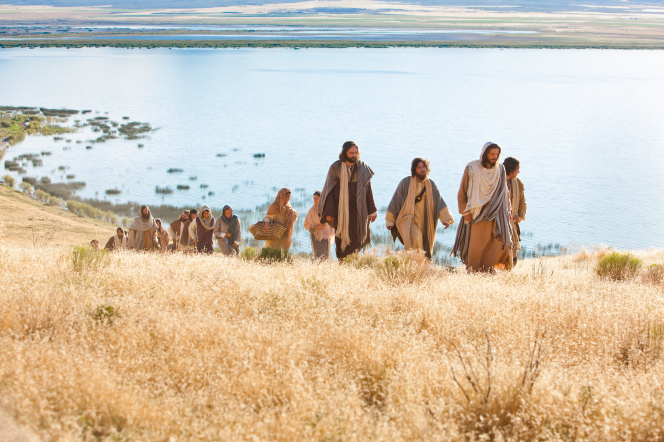"And Jesus went about all the cities and villages,
teaching in their synagogues, and preaching the gospel of the kingdom,
and healing every sickness and every disease among the people."
(Matthew 9:35)
This week we read through Matthew 8-9 and focused on the miracles Christ performs. He goes from city to city as the Son of God and preaches the gospel, witnesses of the Father, and heals those who come unto him.
One of my favorite stories is found in this section:
Matthew 8
23. And when he entered into a ship, his disciples follow him.
24. And, behold, there arose a great tempest in the sea, insomuch that the ship was covered with the waves: but he was asleep.
25. And his disciples came to him and awoke him, saying, Lord, save us: we perish.
26. And he said unto them, Why are ye fearful, O ye of little faith? Then he arose, and rebuked the winds and the sea; and there was a great calm."
I love this story because there are plenty of times in my life where I am amidst a storm and feeling so troubled and hopeless. Many unfortunate times, I have turned to the Lord and asked "Where are you? Save me from this pain. Why is this happening?" With my pride, I feel that the Savior is asleep and not paying attention, or that he needs me to suffer in order to learn, no matter how scared I am.
But then comes the faint voice of "why are ye fearful, o ye of little faith?" And from above, I can finally see and recognize the Lord's hands in my life, calming the storm around me and rebuking the seas and easing my burden. Is the storm gone? No. Will I never experience a storm again? Of course not. Difficulties will still arise, troubles are still surrounding--it's part of mortal life--but I never have to doubt if my Savior is there and I can know and trust that He will ALWAYS step up and protect me, prepare me, and strengthen me.
It amazes me that, even with a lack of faith or my weaknesses, my Savior is still there for me, paying attention to the details and waiting for me to call upon Him and trust in His help to come.
Now, imagine the power of the miracles that could come with solid faith in the Lord! Obviously something to work on throughout this life and one that comes and goes with the ups and downs of spirituality and experiences, but how amazing and powerful faith can be as to bring about miracles in this life still! This concept fascinates me, and I came across such a scripture that inspires me to move forward towards trusting faith, not fearful.
Mosiah 8:18, "Thus God has provided a means that man, through faith, might work mighty miracles; therefore he becometh a great benefit to his fellow beings."
I've learned, and am learning, that the Lord will work mighty miracles in ours lives according to our faith.

